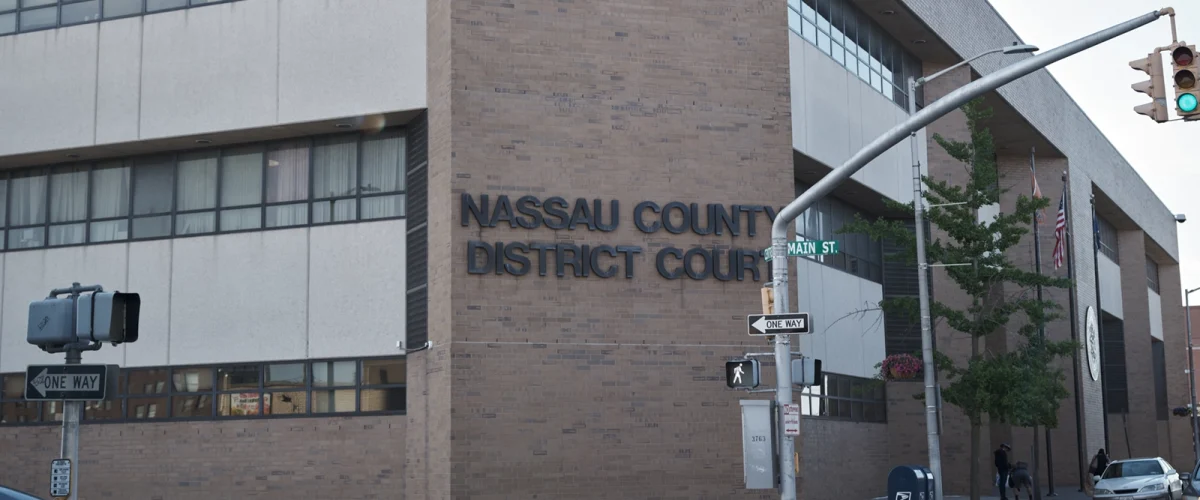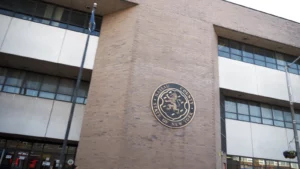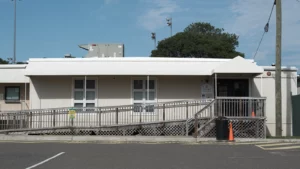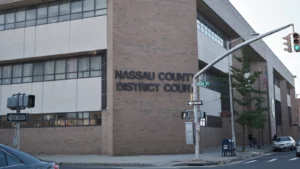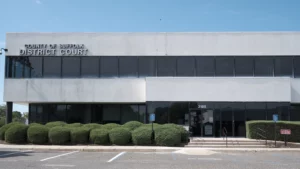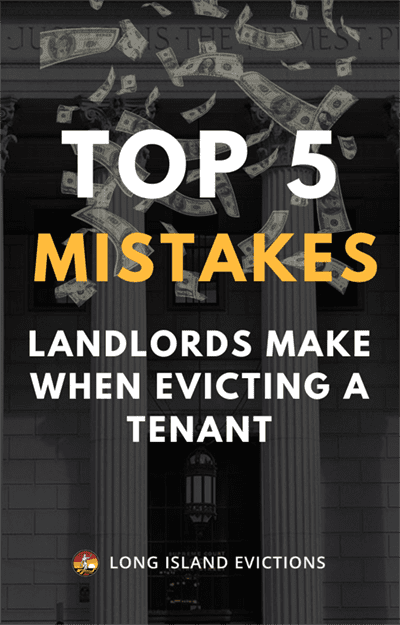The Nassau County Eviction Process
Evicting a tenant from your property can be a stressful experience. There are several steps involved in the process if your property is in Nassau County, New York.
The following is a brief overview of the evictions process in Nassau County. But it is no substitute for speaking with a landlord lawyer. We’ll speak with you for free, right now, and answer all of your questions. Just call the number above, or click the chat button on the bottom right of your screen.
Determining the Type of Eviction Proceeding to Bring
In order to begin the process of evicting your tenant, you must first decide on what type of proceeding you will be bringing. There are two main types of eviction proceedings in Nassau County.
A non-payment proceeding is brought when there has been an arrears amount owed by the tenant that exceeds the rent due under the lease agreement. The amount of arrears is determined based upon the terms of the lease agreement. If the tenant is not paying their rent, the landlord may file a non-payment proceeding against them.
A holdover proceeding is brought when the tenant has remained in possession of the premises after the expiration of his/her lease term. In this case, the landlord files a holdover proceeding against the tenant.
Holdover proceedings are also referred to as “summary” proceedings because they do not require the landlord to prove any wrongdoing on behalf of the tenant. Instead, the landlord simply needs to show that the tenant remains in possession of the premises beyond the end of the lease term.
Once you decide on the type of eviction proceeding that’s best for your situation, you will then have to determine what type of eviction notice your tenant needs to be served with.
Serving Your Tenant With the Right Eviction Notice
An eviction notice must inform the tenant of the reason for the eviction, and give them a specific amount of time to vacate the premises. There are several types of eviction notices required under Nassau County law, usually determined by the lease term and type of the tenancy.
For example, if the lease term is one year, and the tenant is renting month-to-month, the landlord would need to serve the tenant with a 60-day termination notice. This means that the tenant must leave the premises within 60 days of receiving the notice to vacate from the landlord.
The tenant must be served with this notice to vacate before an eviction proceeding can be initiated in court against the tenant. In other words, your tenant must be given official notice, and an opportunity to move out on their own, before you can begin a court proceeding.
Initiating an Eviction Proceeding in Nassau County District Court
Once you know the kind of proceeding you want to start, and you know the notice requirements that must be fulfilled and when they must be fulfilled by, and your notice has been served, and your tenant ignored the notice and refused to move out, you can then initiate your eviction proceeding at the expiration of the notice term. All the outlying districts have closed their courts and have consolidated in the court of the First District Court of Nassau County in Hempstead. It is in one of the three Landlord-Tenant Parts of that courthouse that most eviction actions in Nassau County are heard. If you have any questions about the Nassau County evictions process, feel free to contact us for your free consultation.
If your tenants fail to vacate the property within the time period specified in your notice, then you can go to the Nassau County District Court on 99 Main Street in Hempstead, and make a request to the court to give you permission to remove your tenant. You do this by filing a petition and initiating a court action to remove your tenant and regain possession of your premises.
Essentially, you’ll ask the court to give you permission to remove your tenant. You’ll be assigned a date to appear in court, and your tenants must be served again with a copy of this petition so they know an action has been initiated against them, and so they know what day and time they have to appear in court.
On that court date, the Nassau County District Court Judge can then issue you a judgment of possession and a warrant of eviction. Your tenant can claim they have a defense, in which case your matter may go to trial. If your tenant claims they have a defense and requests a trial, the court will issue you a later date to return, and the court will conduct a trial at that time to hear from both sides. At the end of your trial, the judge will make a decision. If the judge holds in your favor, they will most likely issue you a judgment of possession and a warrant of eviction, which is essentially permission for you to legally physically remove your tenant from your apartment.
Removing Your Tenant After an Eviction in Nassau County
Once you have your judgment of possession and warrant of eviction issued by the Nassau County District Court, you then take this judgment and warrant to the Nassau County Sheriff’s Department, and request that they physically remove your tenant from your rental premises.
The Nassau County Sheriff’s Office will serve your tenant with another notice, and at the expiration of that notice, will return to physically remove your tenant and all of their belongings from the rental property.
If your tenant has any belongings or personal effects left behind at the premises after they have been evicted, the Nassau County District Court process obligates you to pay for storage for a brief period of time so their belongings are not just left outside in the street.
Hiring a Landlord Tenant Lawyer in Nassau County
It can be difficult for landlords to understand the eviction process. Since the eviction process is complex, it is strongly recommended that you seek the advice of a landlord tenant lawyer as soon as possible. If you fail to follow the proper procedures, the court will not grant you a money judgment against the defaulting tenant for the back rent owed and a warrant of eviction will not be issued to physically remove him/her from the apartment.
Contact us today.

